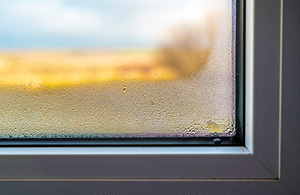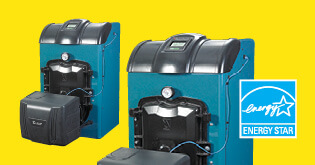- My Account:
- Sign In
- Register
- Make Payment

Benefits of a Humidifier for Whole House | Petro Home Services

Indoor air quality is an essential factor in the overall health and well-being of you and your family. Humidity levels in your home contribute to air quality and high humidity levels may promote mold and bacteria growth, which can worsen allergies, asthma and other respiratory issues. High moisture levels can also lead to increased energy costs and home damage.
Whole house humidifiers along with indoor air quality systems are effective solutions for too little humidity. These systems work with the ductwork in your HVAC system, optimizing its functionality as your home's respiratory system. When it breathes more efficiently, you and your family will, too.
At Petro, we're committed to helping homeowners improve their air quality by offering humidifiers and indoor air quality systems that are easily installed into your existing HVAC system.
Ideal indoor humidity levels
According to the Environmental Protection Agency (EPA), indoor relative humidity should not exceed 60%, with ideal levels between 30% and 50%.
When your relative humidity is higher than 50%-60%, several moisture problems can result, including:
- Mold and bacteria growth
- Mildew smell
- Interior condensation on windows
- Air that is moist and clammy
- Rotting wood
- Intensification of allergies
When your relative humidity is lower than 30%, excessive dryness can cause the following conditions:
Infestations of dust mites and other pests
Aggravated asthma and allergies
Dry mucus membranes, leading to difficulty fighting off colds and other infections
Why indoor humidity levels are important

Keeping humidity levels in your home within the recommended range is essential for your comfort, health, and your wallet.
1. Temperature
Apart from health issues, unbalanced humidity levels in your home can lead to increased energy bills. For instance, excessive humidity can make the temperature in your home feel much warmer, which can cause you to
overuse your AC/HVAC system, add to energy bills, and decrease your home's energy efficiency.
2. Mold and mildew
If the humidity levels in your home are excessive for prolonged periods, mold and mildew may build up in your air ducts and other areas. Mold exposure can trigger or worsen asthma symptoms and allergic reactions.
3. Respiratory health
Research shows that Americans spend approximately 90% of their time indoors and about 70% of that time
at home. People who are the most vulnerable to the harmful effects of indoor air pollution —
those with cardiovascular or respiratory disease — may spend even more time indoors. Indoor concentrations of some pollutants have increased in recent decades due to energy-efficient building construction and increased use of synthetic materials
in furnishings, personal care products, household cleaners and pesticides. These can also lead to inadequate air circulation and combined with excessive humidity in your home, can cause or exacerbate respiratory health issues.
How to regulate indoor humidity

Taking the necessary steps to regulate the humidity in your home is essential for supporting and maintaining your family's optimal health and comfort levels. These critical steps will also help ensure your energy systems run efficiently and keep the structure of your home in its best shape.
Whole house humidifier
The most effective way to regulate home humidity is to invest in a whole house humidifier. By alleviating dryness in the air in the winter, a whole house humidifier is a smart solution that provides the optimal amount of humidity.
A whole house humidifier is easily installed into your existing HVAC system and paired with an indoor air quality system, addresses many other air quality concerns. When your system is on, the air it circulates gets humidified by the whole house humidifier. Unlike a portable humidifier, it ensures that your entire home will enjoy humidified air from a single unit.
Benefits of a whole house humidifier
- Improves your home's indoor air quality
- It can help relieve allergy symptoms, complications from asthma, and other respiratory problems.
- Adjusts winter temperatures to achieve ideal indoor humidity
- Easy and quick to install into your existing AC/HVAC system
Other factors and steps to achieve ideal indoor humidity levels
Various environmental factors in and around your home may impact indoor humidity levels. Here are some additional tips to help reduce or eliminate high moisture levels
in your home:
- Install or inspect kitchen and bathroom exhaust fans
- Check that your dryer and stove exhaust ventilation systems are working correctly
- Open windows to aid in air circulation and humidity regulation
- In summer, use a properly sized air-conditioning system
- Seal openings and porous basement floors that allow moist air into the home's structure where it can cause damage.
Contact Petro Home Services for your whole house humidifier and indoor air quality solutions. Our experts are ready to help with any of your whole house humidifier or indoor air quality system questions and installation needs.
Petro Home Services is proud to not only serve communities in DC, CT, MA, MD, NJ, NY, PA, and RI but we also proudly acknowledge the skills and experience of our expert team behind all resources. With insights on topics ranging from heating oil facts to common air conditioning questions, you can rely on Petro Home Services for facts and information to help you understand more about your heating, cooling and home comfort needs. This article and all articles on the Petro Home Services website have been approved by our team of home service experts.






